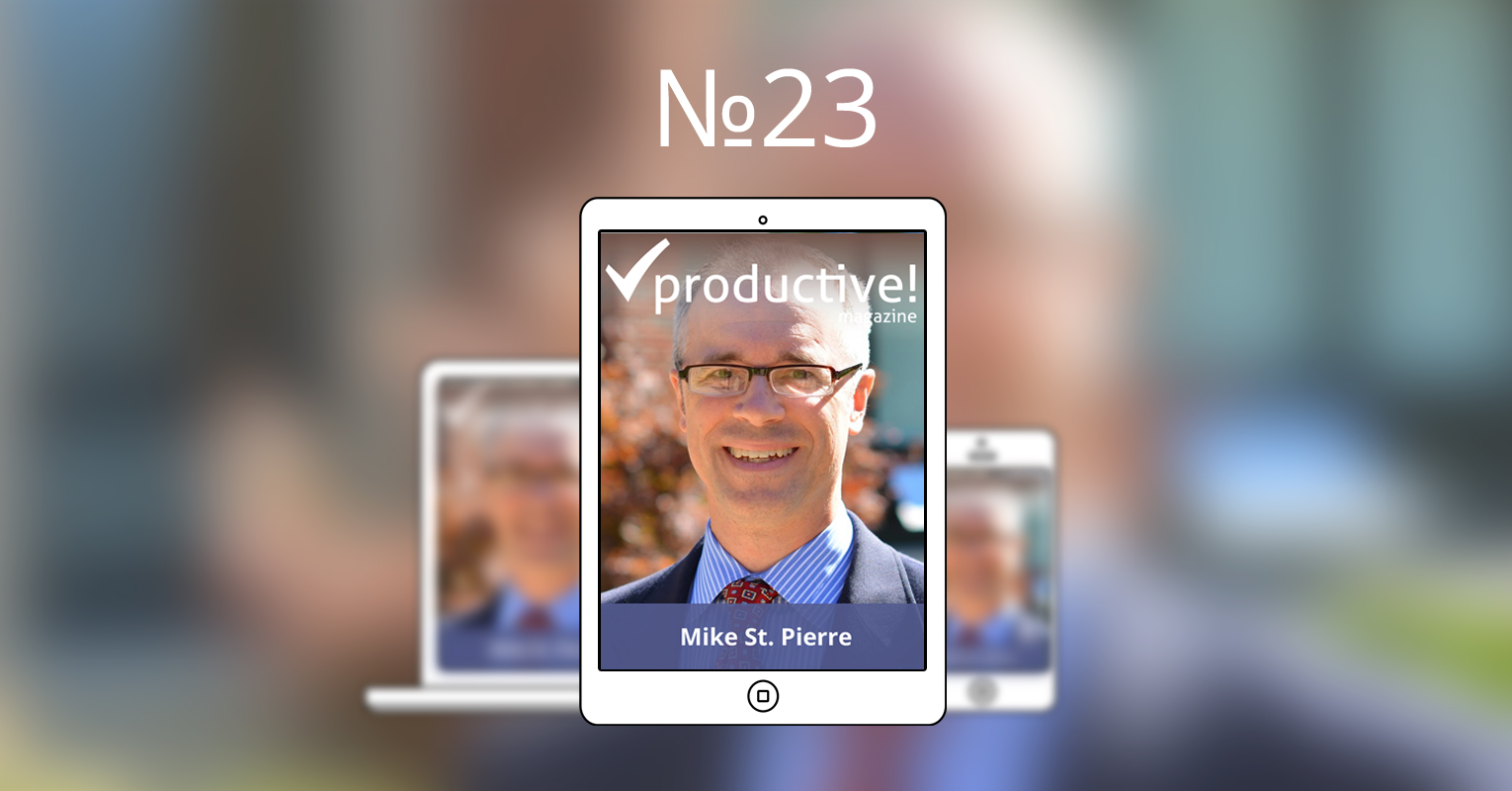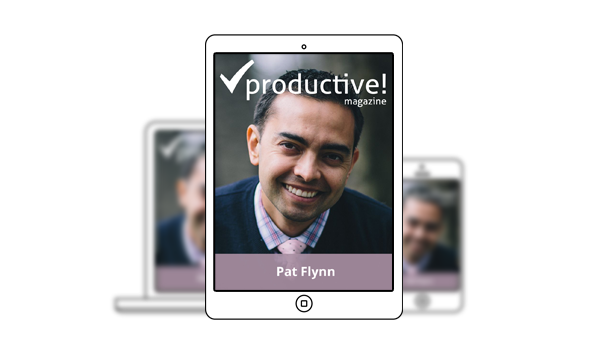Tuesday, September 30, 2014
Productive! Magazine No.23 — Get even more productive in the fall
The summertime has gone. It feels like the energy cumulated during the holiday has disappeared as well. There is less of the sunshine, color gray wins over the green and job seems to be harder...
OK, I may be exaggerating a bit, but it is never too early to charge the batteries a little and regain the power and inspiration. That is why we bring 23rd issue of Productive! Magazine to you. It is full of practical information that can easily change your approach towards productivity and tips&tricks that will help you improve your efficiency right away.

Find a piece of advice that will boost your productivity
Mike St. Pierre, the President of Morris Catholic High School and blogger, tells how schools can improve their productivity and try to become iPadOnly and when it's time to stop using Facebook.
"If using Facebook or Twitter or Pinterest or Google Plus stresses you out or if that takes time away from your family or the people you care about, then it's perfectly okay to take a little break from it. If it's stressing you out you don't need to use it."
Lory Fischler of Leadership Development Services explains what it takes to be successful at mentoring and presents 5 proven principles that work for mentees.
"The honest desire to learn is a mentee’s greatest asset. The value of mentoring is the highest for mentees when they allow themselves to be vulnerable with their mentor."
Rafa Garcia, who helps knowledge-workers improve their self-organization, introduces Kanban Kids and shows how to improve your home life and prepare your children for their future in an enjoyable way.
"Now, instead of repeating orders dozen of times, you just stick a colorful sticky note (or magnet) on the first column. A higher position means more priority."
Grace Marshall, of Think Productive, shares 5 unexpected things she learned this summer and proves how breaking our own rules help discover just how valuable they are.
"Great systems are ones that tick along nicely in the background. Unobtrusive, unnoticed, and often undervalued. Until you stop using them."
Sara Caputo of Radiant Organizing explains how the 5 basics of food, sleep, exercise, communication, and space cannot be replaced with the latest app or newest technology.
"In my years of consulting and coaching with teams and companies in all areas of productivity and workplace and life efficiency, one thing stands out over everything else: these five basics provide the foundation of your life efficiency."
Gonçalo Gil Mata, the founder of MIND4TIME, speaks of introducing productive changes in life. He admits that changes might hurt, but it's worth it.
"To change is to break loose, and that hurts. It's uncomfortable and unknown. You risk putting yourself in an even worse place than you may be. To quit your job, emigrate, start up a business, end a relationship or make a career break to travel around the globe — irreversible decisions that change your fate forever — can be frightening."
Productive Superdad — Timo Kiander, brings you his practical guide to increasing your personal productivity. He lists 3 habits that stand on your way to productivity and shows how to deal with them.
"Schedule a time block of 15 minutes every evening and jot down (either on paper or on task list software) the things you want to accomplish the next day. Let this plan become your "GPS navigation," guiding you through the day."
Cesar Abeid, the host of the popular Project Management for the Masses Podcast explains how to put the Pareto Principle in action and be able to complete the projects related to your important life goals.
"Set aside at least one hour every day to do focused work on tasks from your projects that are connected to your life goals. I call this the "power hour."
Laura Stack of The Productivity Pro®, Inc. writes about smashing data silos and clearing information bottlenecks. You will learn what to do when critical information is inaccessible.
"I've heard tales of military quartermasters who refused to provide much-needed equipment to soldiers, because if they did, it would disrupt their perfect organizational system. Sometimes, when you give people a little power, it goes to their heads, and they feel the need to wield it, to the detriment of the organization as a whole."



